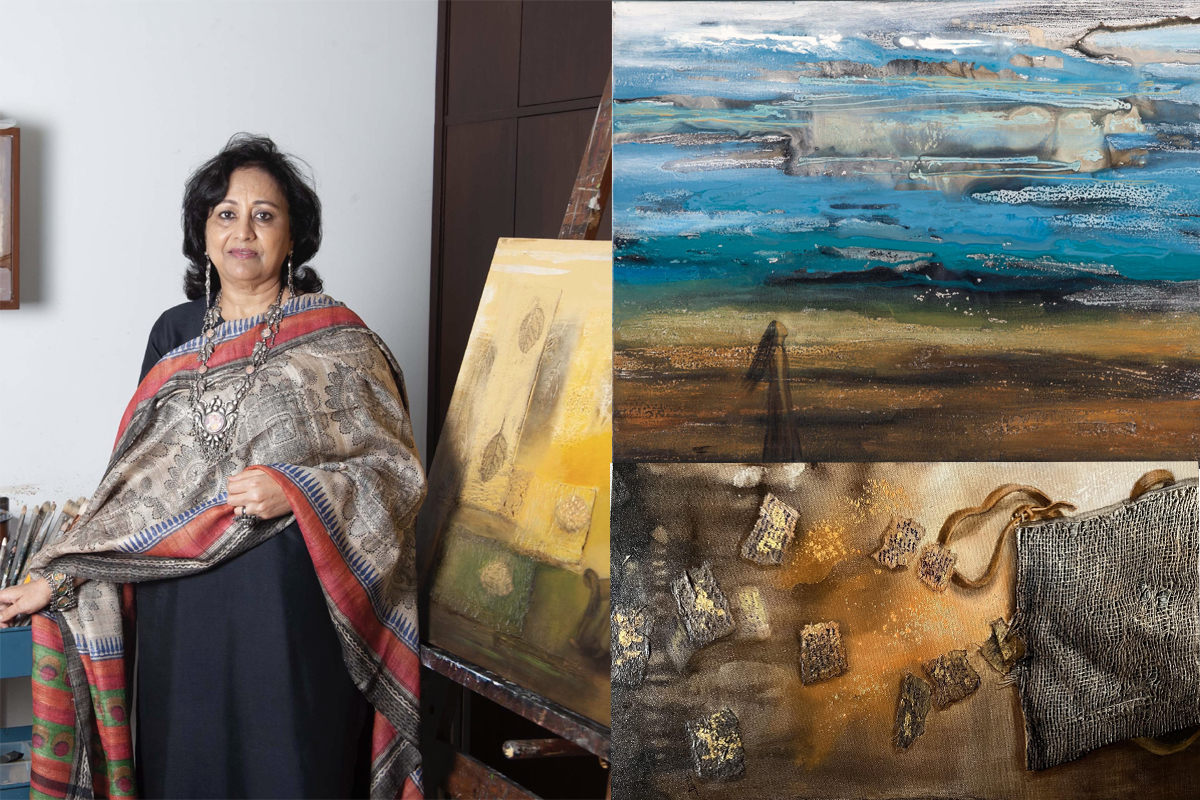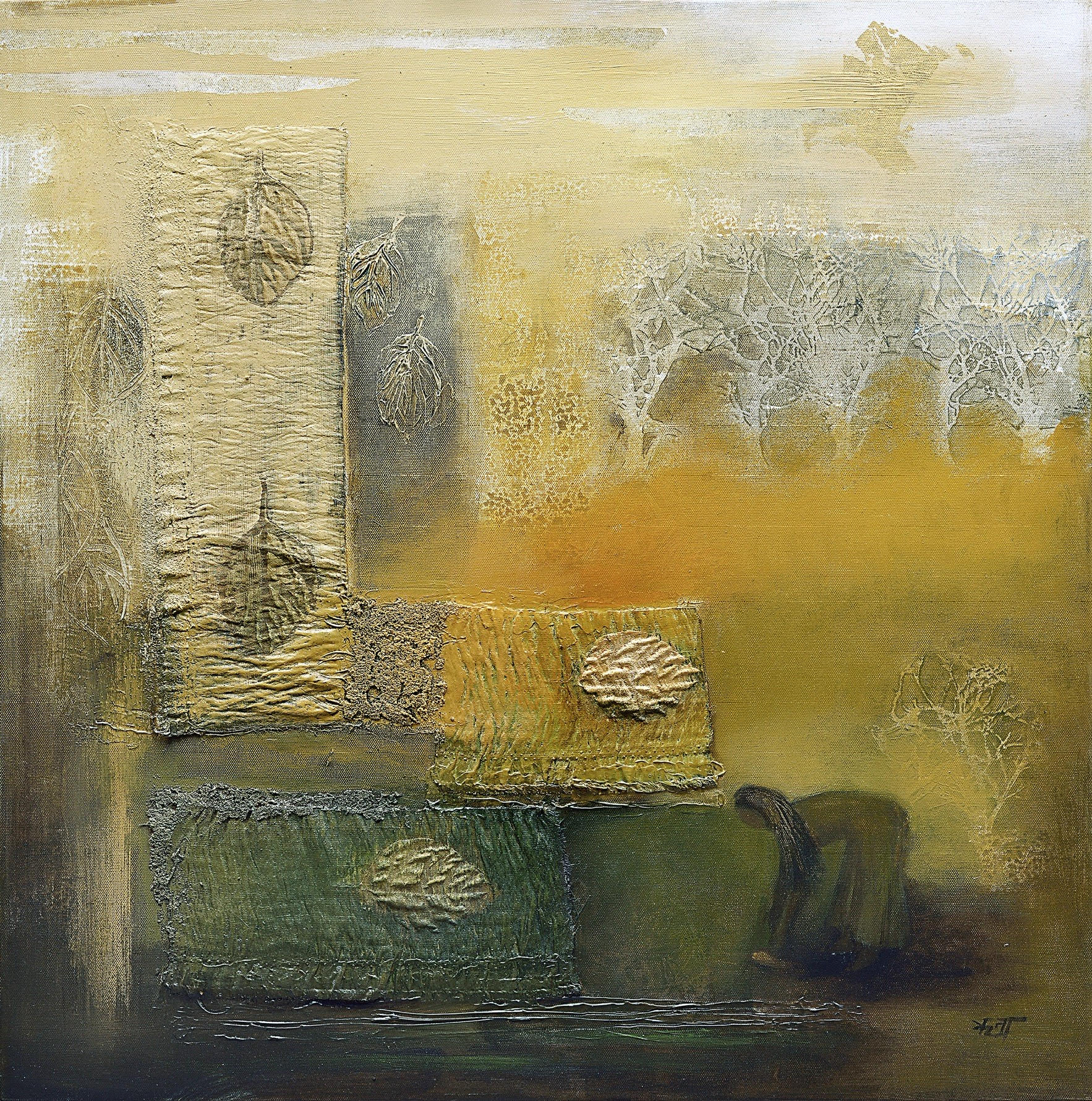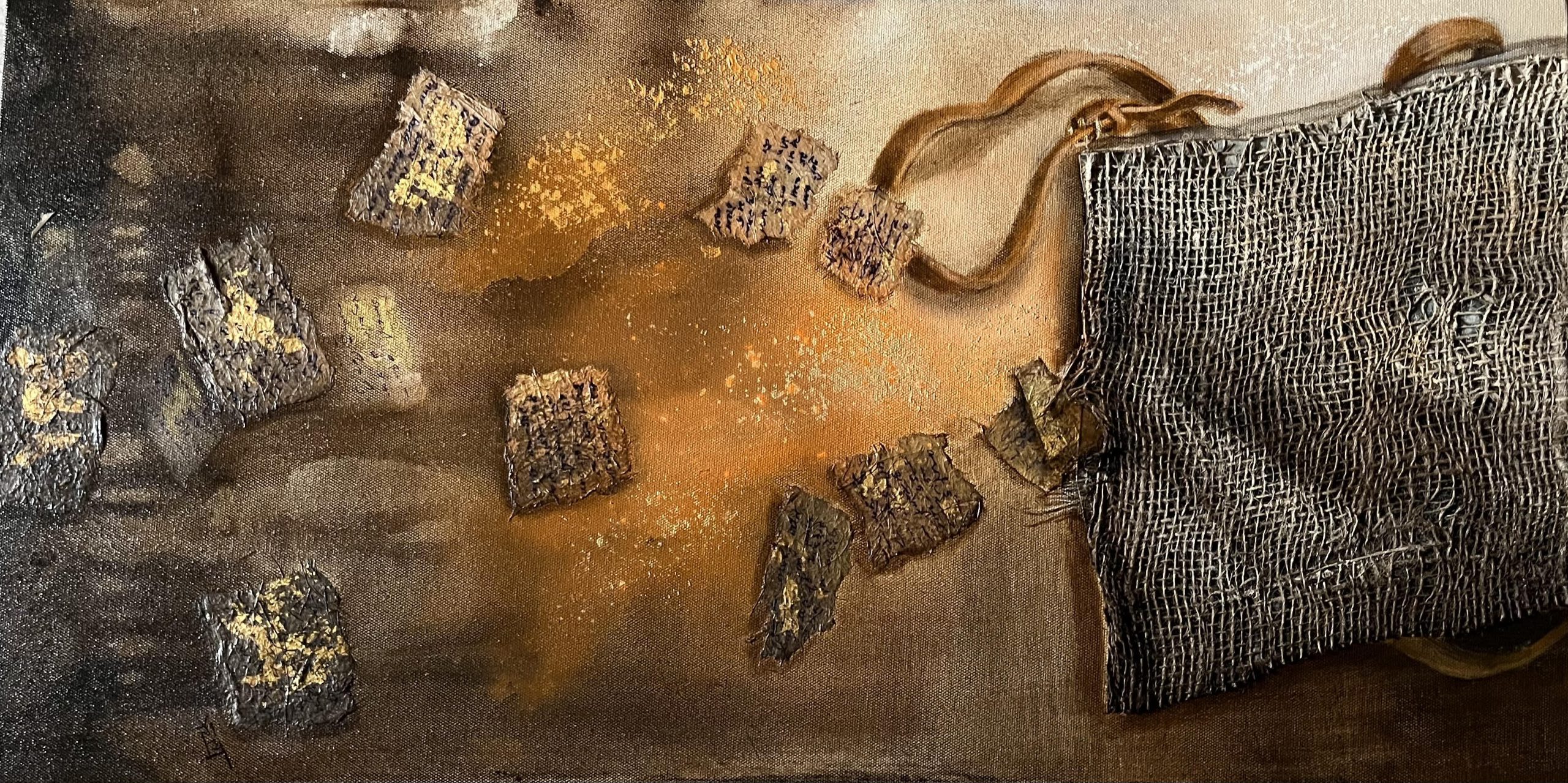Nikki Giovanni, black arts icon and literary legend, dies at 81
Nikki Giovanni was a celebrated poet, activist, and leading voice of the Black Arts Movement. Her powerful works explored race, gender, and social justice.
The 40 poems chosen for ‘Bheegi Lakeerein’ span four decades of Rita’s life. In a candid interaction with The Statesman correspondent Shweta Kumari, Jhunjhunwala shared about her journey and work.

‘Bheegi Lakeerein’: A beautiful confluence of poetry and paintings
Rita Jhunjhunwala is all set to organize her fourth solo show BHEEGI LAKEEREIN. This show is a confluence of Rita’s paintings and poems which is curated by the art historian, author, and curator, Dr. Alka Pande. The 40 poems chosen for ‘Bheegi Lakeerein’ span four decades of Rita’s life. In a candid interaction with The Statesman correspondent Shweta Kumari, Jhunjhunwala shared about her journey and work.
Excerpts:
Advertisement
1. Tell our readers about your first one-of-a-kind solo exhibition Bheegein Lakerein, where you have represented 40 of your poems penned over four decades with each poem represented by a painting.
Advertisement
I have done 20 solo shows/exhibitions so far and numerous group shows but so far I have just been exhibiting my paintings. This is the first and probably the last time that I am showcasing my poems as well. My poems and my paintings are both in tandem with one another. Each painting represents a poem so I think it is going to be a unique confluence of my life works. The poems have been written by me over the past 4 decades and the paintings are quite recent and were made over the past 2 years. The paintings are my lockdown babies and the poems are my thoughts through the different phases of my life for decades.

2. What is the idea and inspiration behind this collection?
From the beginning, I am in the habit of penning down my thoughts whenever I have an excess of emotions or my mind is in chaos, I just write a poem or a verse in some form, and I release them. Once I wrote a poem about my grandmother whom I adore and worship and admire. Alongside I made a portrait of her, this gave me the idea of illustrating my selected poems on canvas, from there it just flowed, it had to happen sometime as I’m primarily a painter.
3. The collection has you following various techniques and media with a lot of textures like fabrics, paper, gold foil, charcoal, elements of nature, etc. Please elaborate more on this and what they represent.
A poem is a train of thoughts worded in a lyrical form, and catching its right vibe on canvas is a tricky project. So you know spontaneously I used different textures, different media, to catch its right mood and I’ve used gold foil, I’ve used handmade paper, newspaper, I’ve stamped and used dry brush strokes with black ink on paper and stuck that. I’ve used fabric and charcoal and many textures and it has just come spontaneously, for example, if I have to show sunlight and cheer, I naturally use gold foil and when I have to show some softness then maybe a fabric comes into play and for stiffness some charcoal, some stiff paper to show some darkness or something which is not happy, to reflect some sadness. I did not choose it by design but just to get that effect I used different textures like fabric, foil, paper, charcoal, gauze, etc. So it is a mix of different textures and painting techniques.

4. Tell us about the coffee table book of Bheegein Lakerein that is going to be published soon.
The book Bheegi Lakerein which is being published soon is now taking shape and will be a simple book with 40 poems with corresponding paintings and we are planning to take out the books both in Hindi, which will have the original poems, and in English in which the poems are transcribed by Ramashree Alladi.
5. Tell us briefly about your family and journey as an artist.
I was born in Kolkata and graduated from Calcutta University in 1977 with meritorious distinction and a government scholarship then I underwent extensive training under eminent national artists and art professors. My family was very radical and non-conservative and they all always encouraged independent thinking.
After marriage in 1978, my father-in-law inspired and encouraged me to take up art as a profession. My first solo show was in 1981 at Sridharani gallery Triveni Kala Sangam and after that, I never stopped painting and I have just moved on in that field.
I’ve had 20 solo shows and numerous group shows all over India and all over metros and internationally in Switzerland, France, Italy, the UK, China, etc. I received the soviet land Nehru award for painting by the president of India and I was sent to USSR. In 1984 I was selected as a finalist in the Grand Prix international painter de France.
In 1985 I received a medal in Rome, Italy and I was selected as a finalist in Cannes, I then received an award for painting in the Rotary club in Delhi. In 2004 my painting was installed in Rashtrapati Bhawan by then president of India Dr. Abdul Kalam.
In 2010 I got the Bhikuram Jain foundation award, in 2013 I got the Sangkitshamala award in Kolkata and in 2018 I got the Aparajita award so more or less that has been my journey.

6. In the past, Buddha, the lotus flower, and Benaras feature prominently in your artwork. Tell us more about this.
I have explored a lot of subjects during my journey as an artist, I’ve worked a lot on Rajasthan in the 90s, when I went to Rajasthan I just succumbed to its magic, the colorful turbans, the swirling skirts, the sun rays hitting the sandstone till they shone like gold, the haunting forts, and Havelis, the shifting dunes playing hide and seek with the ethereal shadows, all this left me breathless and I couldn’t have enough of it. In 2004, I did an exhibition on Buddha, the prince who dedicated himself completely to the cause of realizing the higher purpose of existence and for me buddha represented peace.
I was taken up with lotus as a subject which I explored for many many years and apart from its beauty, the philosophy behind it- that it rises above the murky waters and remains untainted, and when it’s born in filth it rises above, this is a lesson to be learned.
So I was obsessed with lotus and water lilies for years then I went on to Benaras- the first rays of dawn bathing the ghats with molten gold, the dust meeting the mighty Ganges at the vermillion horizon dotted with the silhouettes of boats and barges and in between those perennial moments, a microcosmic cauldron of overflowing sights, sounds, smells, mystical experiences, I just couldn’t resist it so then I worked a lot on Benaras and also I did a show called ‘Immortals’ which was a tribute to all the great people of India from different fields whom I admire, who through their relentless sacrifice, hardworking and inner talent, left the world much better, much richer than they found it. These are the basic subjects that I have explored so far.

7. How does being a Marwari influence your art?
Frankly, I have never thought about it like that but now that you have asked, I think Marwari’s are go-getters and so am I. When I do something, I give my 100% and that is true even in the field of art. As the cliche goes that they are the Baniya community, but nowadays as the Marwari men and women are emerging in other fields in modern society, they are doing exceedingly well in all directions. I think they have a lot of passion and grit.
Advertisement